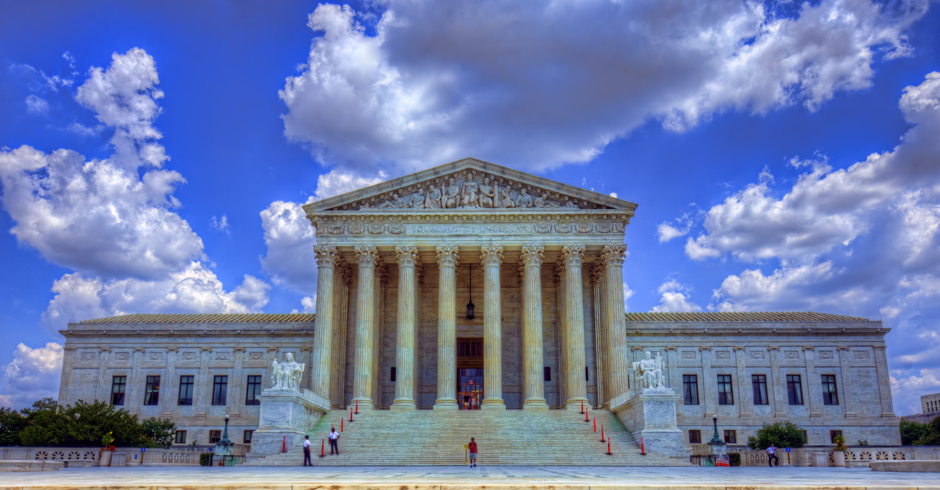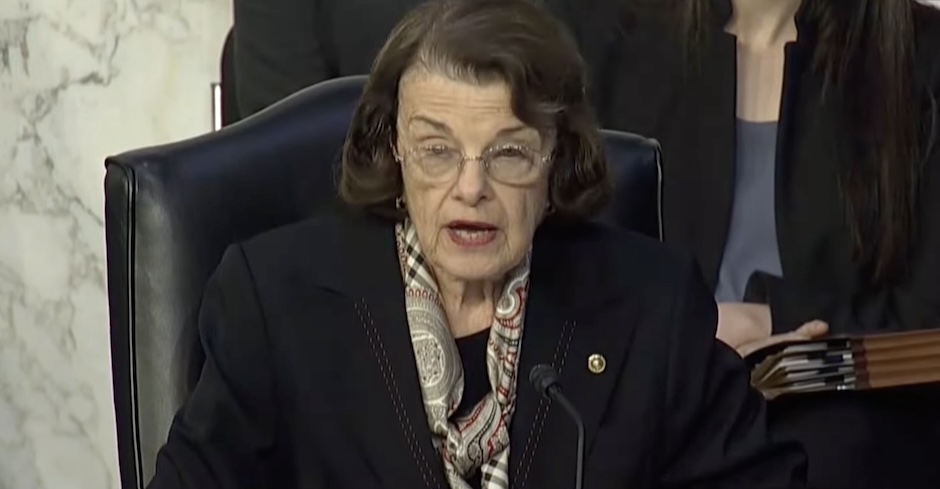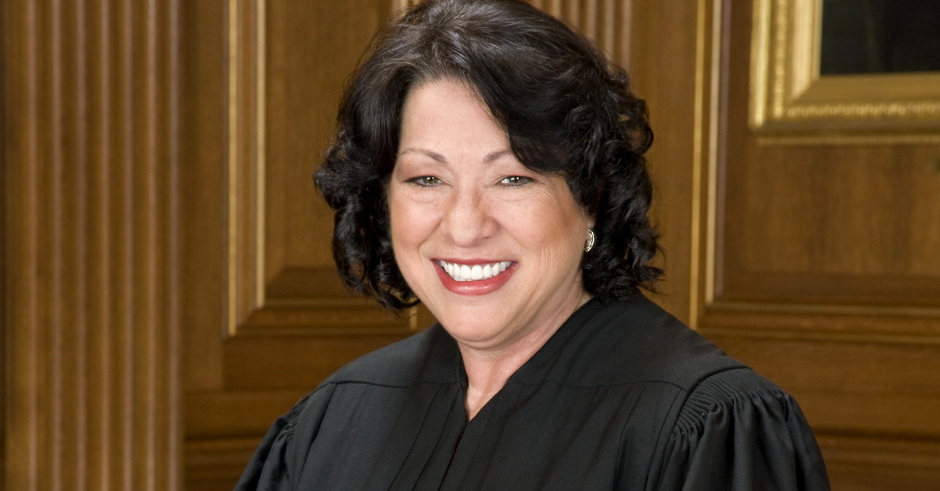ANALYSIS
Overturning Roe Is Just the Beginning

Analysis
The Supreme Court majority built by the hard-right legal movement with help from Republican presidents and senators, and turbocharged by three Trump-McConnell justices, is apparently preparing to overturn Roe v. Wade, eliminating a constitutional right to abortion and potentially eviscerating the constitutional underpinning of rulings protecting privacy and the rights of LGBTQ Americans.
While overturning Roe has been an intense focus and will be a massive victory for the religious right and right-wing legal movement, reversing Roe is just one part of a much broader agenda that has been promoted by the right-wing Federalist Society and allied political operatives who have worked with it to pack the federal courts. Trump basically outsourced his judicial picks to the group’s activists. Now, with the Trump justices cementing a hard-right majority on the Court, Federalist Society lawyers and judges and their political allies can move even more aggressively to reverse a century’s worth of precedents, pulling the constitutional rug out from under the New Deal and Great Society anti-poverty programs like Medicare and Social Security; further gutting voting rights in favor of states’ rights; weakening the separation of church and state; and undermining the federal government’s ability to regulate corporations and protect workers and communities.
Seeking a National Abortion Ban
A leaked draft of a Supreme Court decision written by Justice Samuel Alito dispenses with any notions of nuance in favor of a complete repudiation and reversal of Roe. If the court ultimately rules along the lines set out in Alito’s draft, abortion would be banned or severely restricted in more than half the states immediately or in short order.
Some states already have bans in place. Some have passed “trigger” laws, most of which would take effect at the moment of Roe’s demise. Others, including Michigan and Wisconsin, still have old laws on the books that will come back into force once Alito and his colleagues have removed the constitutional barrier to their enforcement. While some anti-choice groups have talked about preparing for a “50-state battle,” they have already won many of those battles.
Eliminating Roe would intensify the already existing disparities in access to abortion between states. Many people seeking that care will be forced to travel elsewhere—a fundamental freedom that is also being targeted by anti-abortion legislators.
And for all the federalism-embracing, give-it-back-to-the-states rhetoric, expect anti-choice activists to quickly demand a national ban on abortion. The state-by-state approach pursued by anti-choice activists was a strategic decision to bypass Congress, chip away at Roe, and build momentum toward a day when the Court was in their ideological grasp. But a nationwide ban is their goal.
This is not speculation. The amicus brief submitted by Princeton University professor Robert P. George, a brief cited in Alito’s draft, is clear. George argues that “prenatal persons” and “unborn children” are persons under the 14th Amendment from the moment of conception, and therefore that states should be required to treat abortion as homicide. He argues that Congress would have to enforce such a ruling “if States failed in their duties.” George’s brief mirrors the arguments of the hard-core “personhood” wing of the anti-choice movement, which has successfully pushed anti-choice legislators away from even granting exceptions to abortion bans in cases of rape and incest. The right to contraception is at risk, too, as anti-abortion activists are hard at work to make the public believe that some widely used forms of contraception are the equivalent of abortion.
Eliminating Equality for LGBTQ Americans
Alito’s draft includes language seemingly meant to suggest that if adopted by the majority, his ruling would not put LGBTQ equality at risk. “Nothing in this opinion should be understood to cast doubt on precedents that do not concern abortion.” Referring to the Court’s rulings in Lawrence v. Texas, which overturned state laws criminalizing homosexual conduct, and Obergefell v. Hodges, which recognized marriage equality, Alito’s draft says that the Court ruling against a right to abortion “does not undermine them in any way,” in part because those decisions do not involve “the critical moral question posed by abortion.”
But that reads as high-level gaslighting.
In a 2020 comment on the court’s decision not to hear a case brought by a marriage-resisting county court clerk, Alito and Clarence Thomas disparaged Obergefell, saying that a right to same-sex marriage cannot be found in the Constitution. And many anti-choice activists have portrayed opposition to marriage equality as inhabiting the same legal and moral plane as opposition to abortion.
A brief submitted by Texas Right to Life was filed by Jonathan Mitchell, the author of the Texas abortion ban that the Supreme Court has allowed to take effect. The brief sneers at “court-invented rights to homosexual behavior and same-sex marriage,” calling the Lawrence and Obergefell decisions “as lawless as Roe.”
Robert George, who argues that states must treat abortion as homicide, is also intensely opposed to legal equality for LGBTQ people. A founder of the National Organization for Marriage, George co-authored The Manhattan Declaration, a 2009 manifesto whose signers frame opposition to abortion and marriage equality as similarly non-negotiable. The manifesto concludes with this:
Because we honor justice and the common good, we will not comply with any edict that purports to compel our institutions to participate in abortions, embryo-destructive research, assisted suicide and euthanasia, or any other anti-life act; nor will we bend to any rule purporting to force us to bless immoral sexual partnerships, treat them as marriages or the equivalent, or refrain from proclaiming the truth, as we know it, about morality and immorality and marriage and the family.
Anti-LGBTQ activist Ryan Anderson, a Robert George protégé, has urged anti-marriage equality activists to follow his road map to overturning Obergefell, with the religious right’s anti-Roe campaign as a guide. The first step in his plan was to denounce the marriage equality decision as illegitimate, which George and others have done relentlessly. Other anti-LGBTQ leaders, like Family Research Council President Tony Perkins and National Organization for Marriage President Brian Brown, have also expressed hope that success in eradicating a right to abortion points the way toward doing the same for marriage equality.
And it is not just about marriage. Many religious-right legal and political advocacy groups defended state laws that made gay people de facto criminals and opposed the Lawrence decision. You can hear that in the rhetoric of anti-LGBTQ activists who express a desire to return to a time when gay people were disfavored in law and demonized in popular culture, and already, they are working to return us to that time with a wave of anti-LGBTQ rhetoric and legislation smearing LGBTQ people and their allies as “groomers” and sexual predators.
Indeed, anti-choice activist Janet Porter recently said she hopes to apply the nefarious strategy of Texas’s abortion ban, which allows anyone to sue anyone who helps a person obtain an abortion, to LGBTQ issues in schools, making teachers, librarians, and school board members vulnerable to lawsuits for “pushing this garbage on our children.”
‘Rome Wasn’t Burned in a Day’: Return to a States’ Rights Constitution
In the name of federalism, the Supreme Court’s conservative and far-right justices have repeatedly weakened the federal Voting Rights Act, giving a green light to state legislators to pass wave after wave of voting restrictions. That is far from the only way that the right-wing legal movement hopes Trump’s justices can continue to “fundamentally change the country.”
In 2017, Republican congressional and White House aides told a conference of religious-right activists that getting a second Supreme Court justice would allow Trump to create “epic, titanic” shifts and undo New Deal and Great Society programs created when Democrats had wide congressional majorities. Trump also filled lower federal courts with ideologically minded judges who give hard-right justices like Alito and Thomas the “troops” to carry out their judicial counterrevolution.
Dismantling much of what the federal government does to address poverty and access to education and health care has been a long-term project, a reality reflected in a bit of Federalist Society humor: “Rome wasn’t burned in a day.” But right-wing funders knew their long-term investments could bring huge returns.
The confirmation of Trump’s third Supreme Court pick, Justice Amy Coney Barrett—who some anti-choice activists believe was anointed by God to help the Supreme Court overturn Roe—could also strengthen the religious right’s already successful push to weaponize and redefine religious liberty in ways that weaken the Establishment Clause, which prohibits the establishment of religion by Congress, and the separation between church and state.
The net result is all too clear. As tragic as it is, the reversal of Roe is just one step in the far-right campaign to rewrite the Constitution and gut fundamental rights, harming millions of Americans in the process.
This article was originally published by Right Wing Watch and is republished here by permission.
Enjoy this piece?
… then let us make a small request. The New Civil Rights Movement depends on readers like you to meet our ongoing expenses and continue producing quality progressive journalism. Three Silicon Valley giants consume 70 percent of all online advertising dollars, so we need your help to continue doing what we do.
NCRM is independent. You won’t find mainstream media bias here. From unflinching coverage of religious extremism, to spotlighting efforts to roll back our rights, NCRM continues to speak truth to power. America needs independent voices like NCRM to be sure no one is forgotten.
Every reader contribution, whatever the amount, makes a tremendous difference. Help ensure NCRM remains independent long into the future. Support progressive journalism with a one-time contribution to NCRM, or click here to become a subscriber. Thank you. Click here to donate by check.
 |























